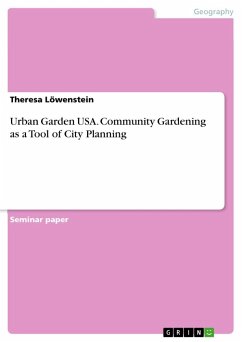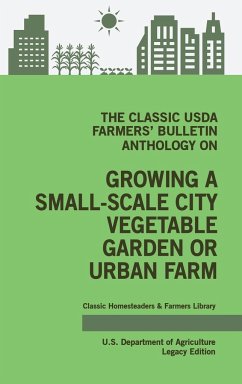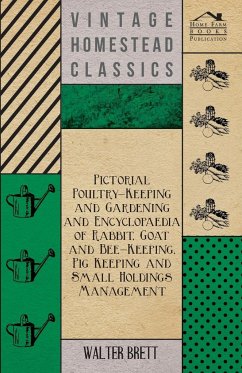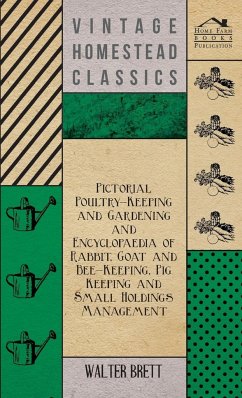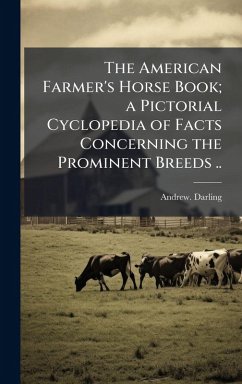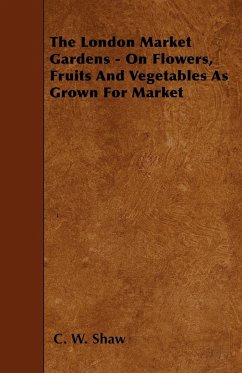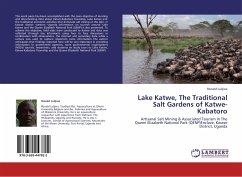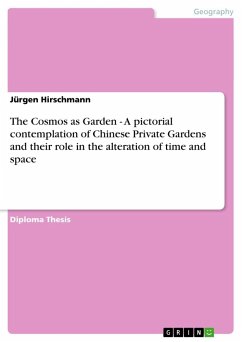
The Cosmos as Garden - A pictorial contemplation of Chinese Private Gardens and their role in the alteration of time and space

PAYBACK Punkte
0 °P sammeln!
Diploma Thesis from the year 2009 in the subject Landscape Management, grade: Sehr gut, University of Natural Resources and Applied Life Sciences, Vienna, language: English, abstract: Although China cultural as well as political is opening up since about thirty years, the Chinese manner of cerebration, except of few exemptions, has still keep refused most people in the western world. Primarily this has to do with the ancient Chinese ideology self. The Chinese, who are calling their country "The Empire of the Middle", were on principle in the past rarely attempted to leave their nation because ...
Diploma Thesis from the year 2009 in the subject Landscape Management, grade: Sehr gut, University of Natural Resources and Applied Life Sciences, Vienna, language: English, abstract: Although China cultural as well as political is opening up since about thirty years, the Chinese manner of cerebration, except of few exemptions, has still keep refused most people in the western world. Primarily this has to do with the ancient Chinese ideology self. The Chinese, who are calling their country "The Empire of the Middle", were on principle in the past rarely attempted to leave their nation because the remaining world for them was not really livable. Outside the boundaries, there lived the so called barbarians, who in ancient times mostly were embodied by brutal Mongolian tribes, who martially tried to infiltrate China and from them the Chinese had to protect. So, they created their own world, a world in the world, enclosed by the thousands of meters long Great Wall (Chang Cheng), inside of they felt confident and could develop further. This retirement in an enclosed space and last but not least the retirement in oneself paved finally the way for their private gardens, in which they could undisturbed find an access to a better "world". This essay will deal with these little enclosed garden worlds, these micro-cosmos in a macro-cosmos. This work consists of a searching for their history and the holistically "religious" backgrounds, which first made enable these small but coevally "infinite" universes. It get to the bottom of the correlations between time and space, establish relationships between narrow and open, bright and dark, and last but not least inside and outside, which all are parts of an all-containing, super-ordinate "Great". It makes close connections to landscape paintings and the gardens self, which as major motif threads through the whole text, will find out that they are close correlated to the "Great" and grapple with the centre of the "Whole", with the "Zero-Perspective" or the "Vapidness", in which the human as important part at least can dive in to touch the sky. Of course also the framework of a Chinese private garden, the several elements, are considered, without them no garden could exist. The role and the important task of their walls will be bespoken, the several constructions of their buildings and last but not least the close to the human correlated plants. All this aspects will be picked up again at a walkabout through three famous Chinese gardens in Suzhou, where the mindfully reader finally will notice, that size does not necessarily count in architectural garden space.





